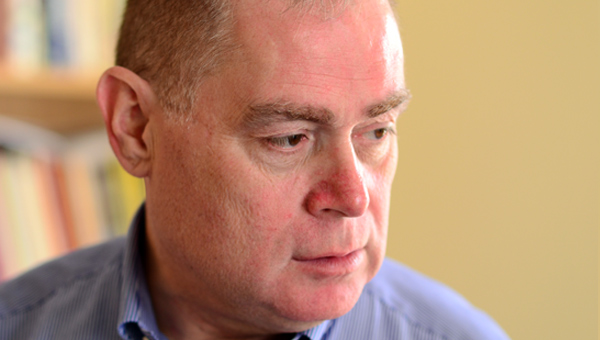Special books for ‘special needs’ children


When an American boy scout made up a kit to help his sister with special needs with her first communion, he didn’t dream that the Jesuit-run Loyola Press would hear about it and design a whole sacramental series based on his work. But they did and on a recent visit here, Irish Jesuit Paul Campbell (pictured here) told the story to Pat Coyle from the JCC.
Paul, who is the publisher with Loyola Press, tells how when they heard about the young boy’s project they arranged to meet him. He was really upset that his sister might not be able to make her first communion because of her special needs (she was severely autistic). So he worked with simple ideas and material to try to help her get a grasp of holy communion. “We were really impressed with what he was trying to do and we called in some experts and built on his idea and developed a whole back pack of material to help in the religious education of children with learning disabilities.”
The Press produced a back pack with photos, pictures, foam board and other visual aid materials for instruction in receiving the sacrament of first holy communion. They were so useful to parents and pastors and religious educators that requests came in for similar material for other sacraments and now they have packs for the sacrament of reconciliation and confirmation. “It’s not a money making venture for us but it’s a joy to serve a community of people who up until now have seen their children refused the sacraments just because they didn’t pass the test of understanding”, says Paul.
The packs have now been translated into Spanish and Paul says Loyola Press would be happy to work within copyright with any publisher from around the world, including Ireland, to develop similar material. He says there is a real need here as many children with special needs are not receiving the sacraments because they are not catered for within the religious education system of a school or parish.
You can listen here to the full interview with Paul Campbell who begins by talking about the work of Loyola Press in the US.


